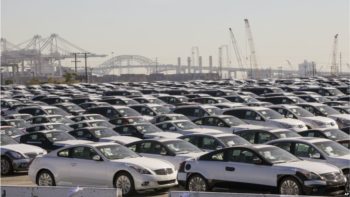
The United States has launched a national security investigation into car and truck imports that could lead to new U.S. tariffs similar to those imposed on imported steel and aluminium in March.
The national security probe under Section 232 of the Trade Expansion Act of 1962 would investigate whether vehicle and parts imports were threatening the industry’s health and ability to research and develop new, advanced technologies, the Commerce Department said on Wednesday.
“There is evidence suggesting that, for decades, imports from abroad have eroded our domestic auto industry,” Commerce Secretary Wilbur Ross said in a statement, promising a “thorough, fair and transparent investigation.”
Higher tariffs could be particularly painful for Asian automakers including Toyota Motor, Nissan Motor Co, Honda Motor Co and Hyundai Motor Co which count the United States as a key market.
The announcement has sparked a broad sell-off in automakers’ shares across the region. The governments of Japan, China and South Korea said they would monitor the situation, while Beijing, which is increasingly eyeing the United States as a potential market for its cars, added that it would defend its interests.
“China opposes the abuse of national security clauses, which will seriously damage multilateral trade systems and disrupt normal international trade order,” Gao Feng, spokesman at the Ministry of Commerce, said at a regular news briefing on Thursday which focused largely on whether Beijing and Washington are making any progress in their growing trade dispute.
The probe comes as Trump courts voters in the U.S. industrial heartland ahead of mid-term elections later this year, and opens a new front in his “America First” trade agenda aimed at clawing back manufacturing jobs lost to overseas competitors.
It could raise the costs for overseas automakers to export vehicles and parts to the world’s second-largest auto market.
Growing trade tensions over cars and car parts, particularly with China, could raise risks for U.S. companies expanding their presence in the country, signs of which are already emerging.
Agency Report